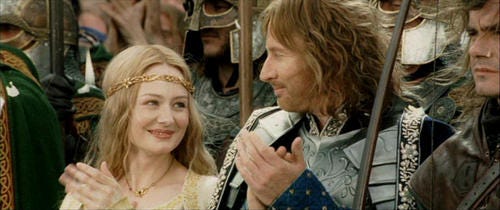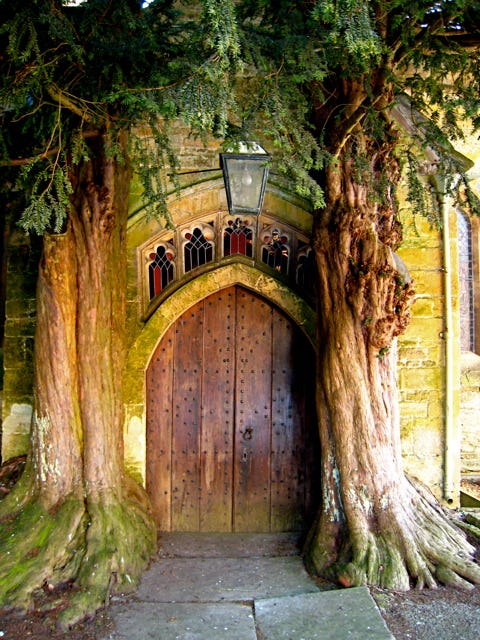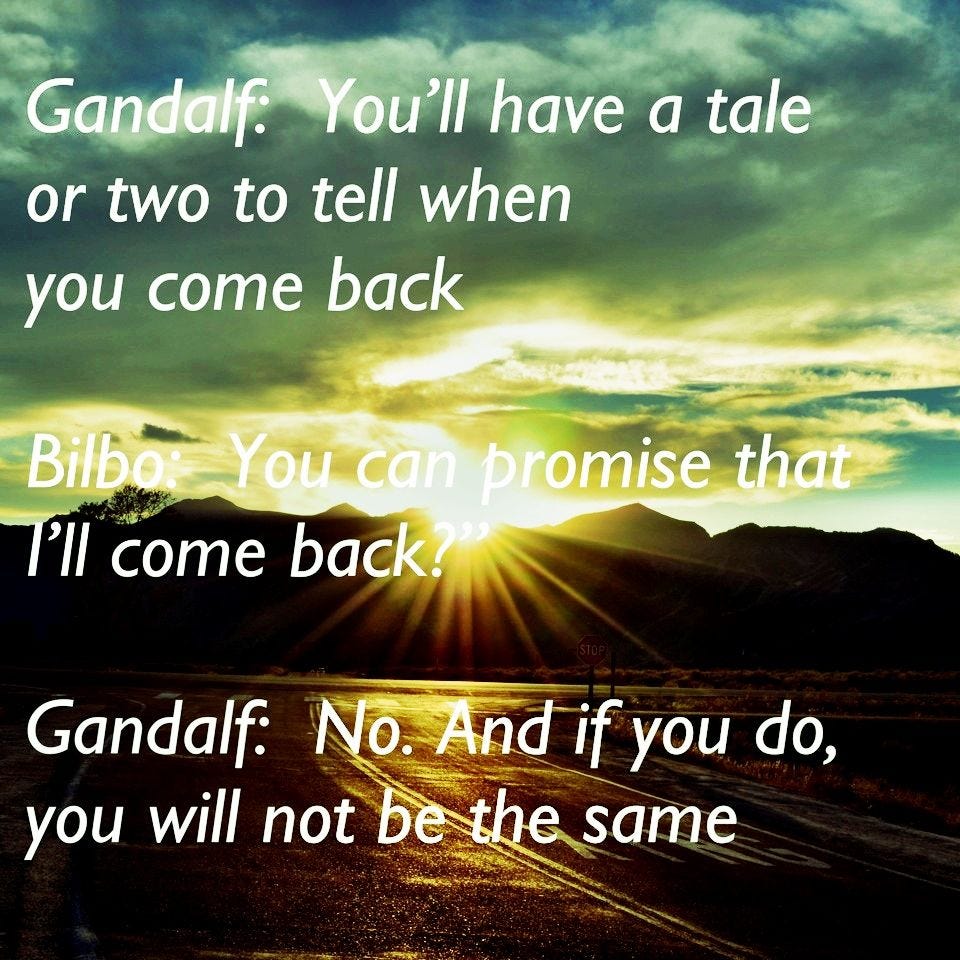'Lord of the Rings,' by JRR Tolkien | Book Review
If you're around me for any length of time, you'll quickly pick up on two things:
I am a Christian.
I am passionate about Lord of the Rings. (The movies, yes, but more importantly, the book.)
Yes, book, singular; Tolkien wrote one book and broke it into parts. Did you know that the book was published in three volumes primarily because of the paper shortage after WWII? Things I learn!
You may wonder why I love Lord of the Rings so much. (Sometimes I wonder, too.) You may, further, ask why I recommend anyone and everyone read it (and several times, at that). Hence this post, on both fronts.
The Background: Setting the Stage
The Lord of the Rings films began releasing right after I started college; I'd not read the books previously, and wanted to do so before my cadre of friends and I saw the films live. Little did I know what that would spark over the following 15 years: re-read upon re-read (last count was 15!), multiple film viewings, costumes, movie nights, lembas making, meeting cast members, and breathing new life into my cloak (originally a purchase for a formal event).
The Reasons: Why Read Lord of the Rings?
Disclaimer: To jump back to the first bullet point, above - the Bible is my (and the) ultimate foundation and favorite book. Everything that follows here assumes second place to that.
The Lord of the Rings is the mother of all fantasy literature.
Fantasy had been written prior to Tolkien, of course; however, there was nothing of its scope or kind.
Every post-1955 fantasy novel you will ever read is somehow influenced by it.
J.R.R. Tolkien is to epic fantasy what Jimi Hendrix is to rock guitar; what Edgar Allan Poe is to horror stories; what William Shakespeare is to drama.
...After Tolkien, any book featuring elves, dwarves, hobbits, and/or goblins was borrowing elements of his work (or accused of “stealing” them outright).
...Granted, Tolkien was not the first human being to write about elves or goblins or dwarves. Yet he popularized his personal vision of these creatures to such a towering degree that his take on them has largely replaced the actual folklore that birthed them. {Source: John R. Fultz, OrbitBooks | Direct Link}
Tolkien's language, writing style, and world are unparalleled.
We all know that nature can take our breath away: a beautiful sunset or sunrise, the ocean, flora and fauna, and more. But did you know that literature can do that as well? Lord of the Rings is my favorite example of the written word doing the same.
"Then, Éowyn of Rohan, I say to you that you are beautiful. In the valleys of our hills there are flowers fair and bright, and maidens fairer still; but neither flower nor lady have I seen till now in Gondor so lovely, and so sorrowful. It may be that only a few days are left ere darkness falls upon our world, and when it comes I hope to face it steadily; but it would ease my heart, if while the Sun yet shines, I could see you still. For you and I have both passed under the wings of the Shadow, and the same hand drew us back."
{Source: Faramir, Tolkien's The Lord of the Rings: The Return of the King, chapter: "The Steward and the King"}
(Any of my friends reading this are probably laughing right now. They know I can't talk about LOTR without talking about Faramir and Eowyn, and my super-humble opinion that Beren and Luthien aside, they are the great love story of the book.)
Speaking of love stories...
The love stories in LOTR are pretty epic.
Beren and Luthien. Aragorn and Arwen. Faramir and Eowyn (my personal favorite pairing, as noted above).

Image via FanPop.com
You'd be hard-pressed to beat any of these love stories. And Tolkien told their stories without affairs, sex, or anything else the world says "sells".
The books are clean.
Yes, there's violence. But there's no language or sex. Two massive wins in my book.
I'm not trying to gloss over the violence at all - but I will say that the reader's mental imaginings are a far cry from seeing them portrayed on the big screen.
(So is Arwen [another topic my friends will laugh at my inevitably mentioning, and under this bullet point].)
The books are approachable and enjoyable, regardless of your faith (or lack thereof).
You don't have to be a person of faith to read LOTR and gain from them. Taken at face value, knowing nothing about the author, the reader may not know that Tolkien was a devout Roman Catholic. He was adamant that the books not be taken allegorically; while his faith certainly greatly influenced his writing, it's quite understated.

This entrance to Stow-on-Wold's St. Edward's Church is said to have been Tolkien's inspiration for the entrance to the Mines of Moria. Image via Wikipedia.
Re-reading the book allows you to enjoy it and pick up on things you might have missed previously.
The first time I read Return of the King, I blitzed through it. I simply had to know how it all happened - and read it so fast that I missed a semi-critical plot point. My dad asked me what I thought of said plot point, and I responded with a blank look, pretty much this:

Image via MemeGenerator.net.
I literally had to go back and read the last quarter of the book to get it. This illustrates two points:
Read leisurely, especially when it comes to Tolkien. These things can't be rushed.
Re-read, and re-read, and re-read.
When you see a movie, the first and second viewings are vastly different. The first time, you're just trying to keep up, right? But the second time, you know the basic storyline, and can relax and enjoy more fully. This inevitably means you'll pick up on a lot more.
The same goes for books, and Lord of the Rings is no exception. It may even be one of the ultimate examples. It's thick. It's a drag sometimes. (Here's looking at you, The Two Towers. You're like the Leviticus of LOTR.) But it's so immensely worthwhile. I may even hazard that it will impact other books you read in future.

Source: Matt Raglund.
Weigh In!
Buy your own copy of Lord of the Rings (I can guarantee it'll be overdue at the library before you finish). Choose from the omnibus or individual "books" (both affiliate links, and the second one includes The Hobbit, which sets the stage for LOTR quite nicely).
Have you read the books and/or seen the films? What do you think of the thoughts above? Leave a comment with your favorite character, the best thing about the books or films, or maybe even what you're glad they didn't try and film. (Tom Bombadil?)




